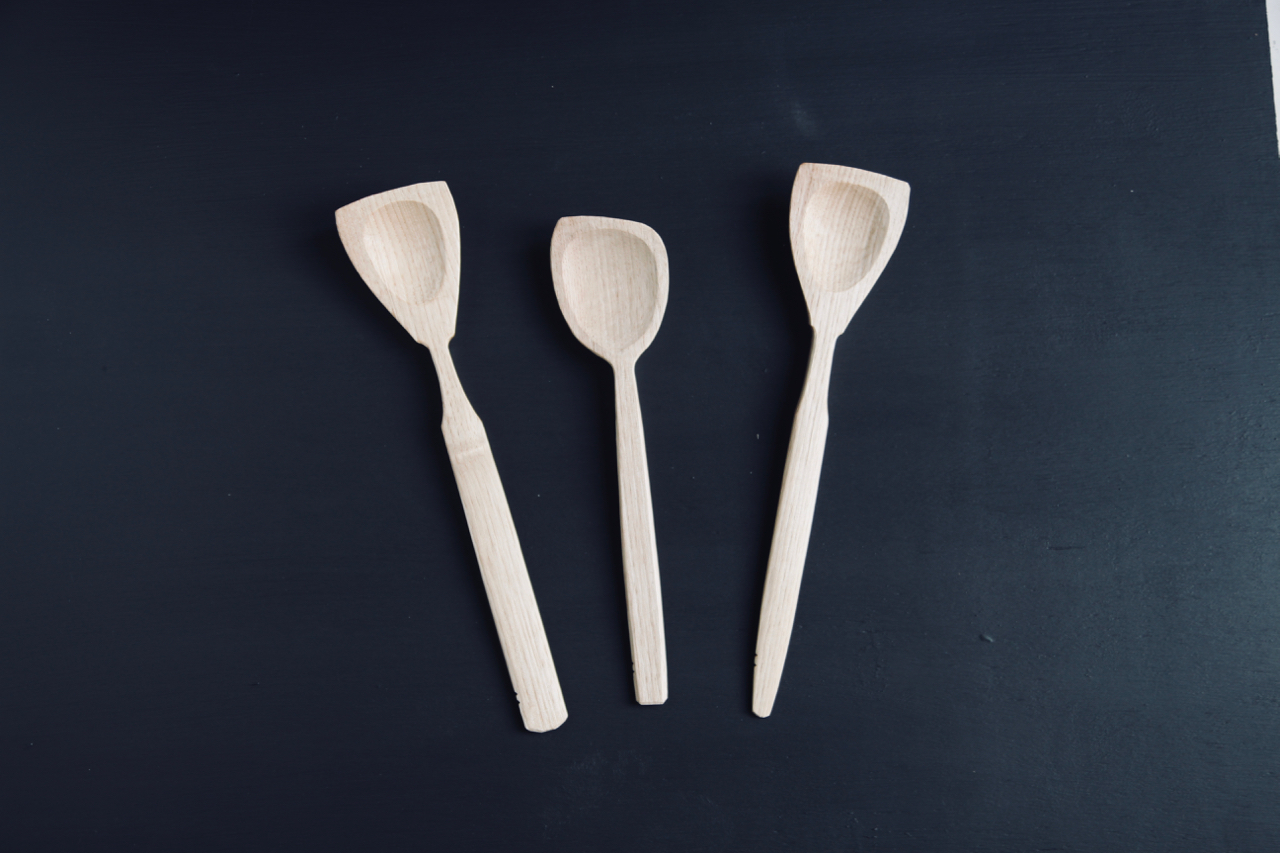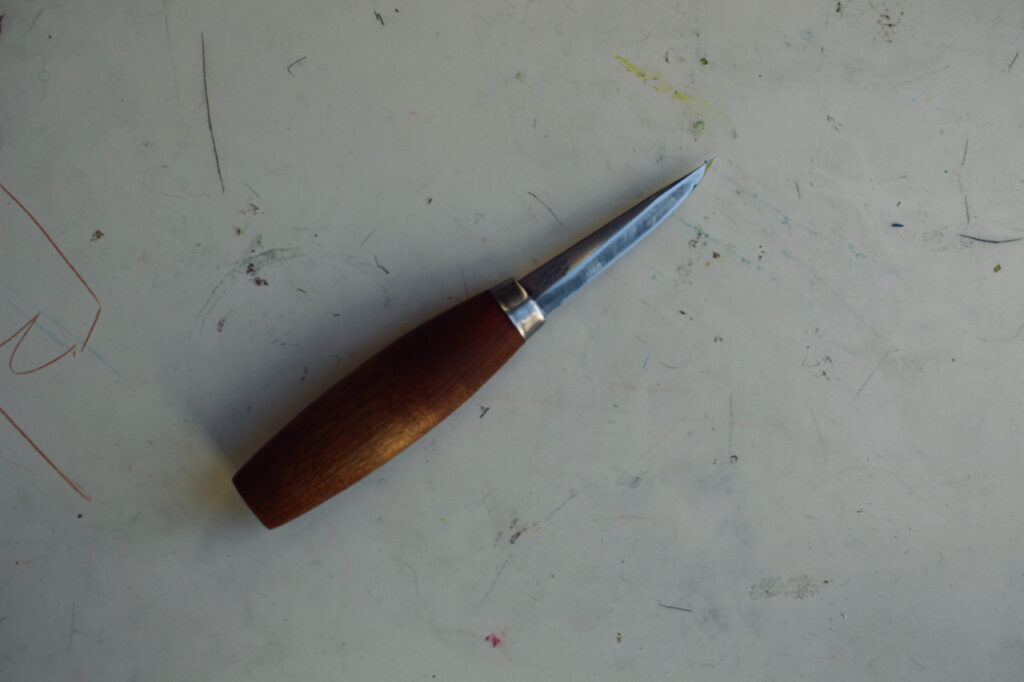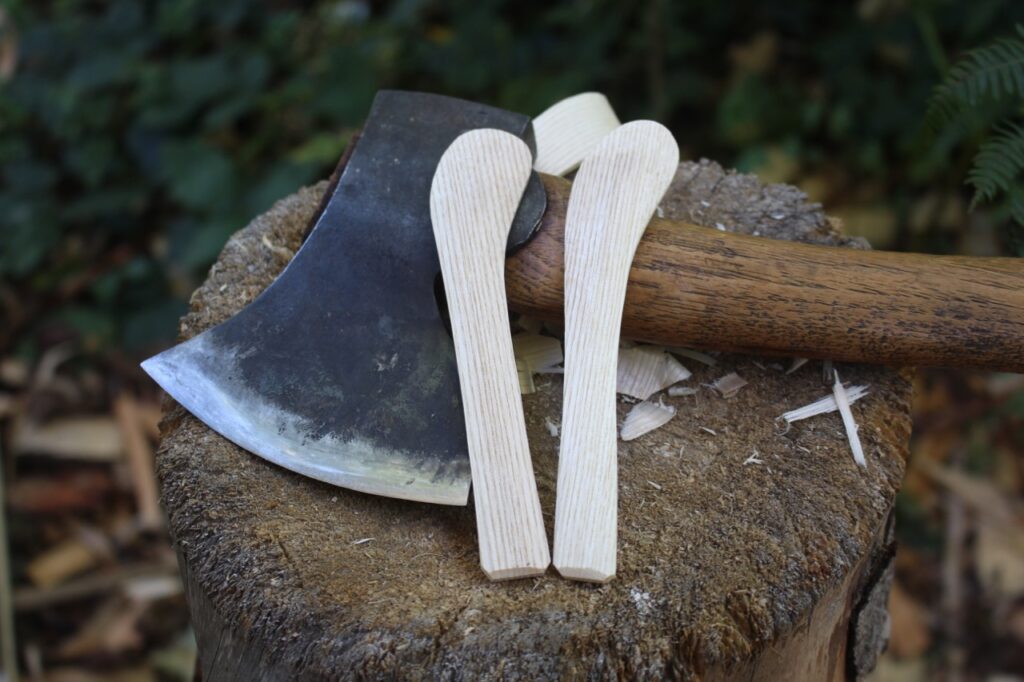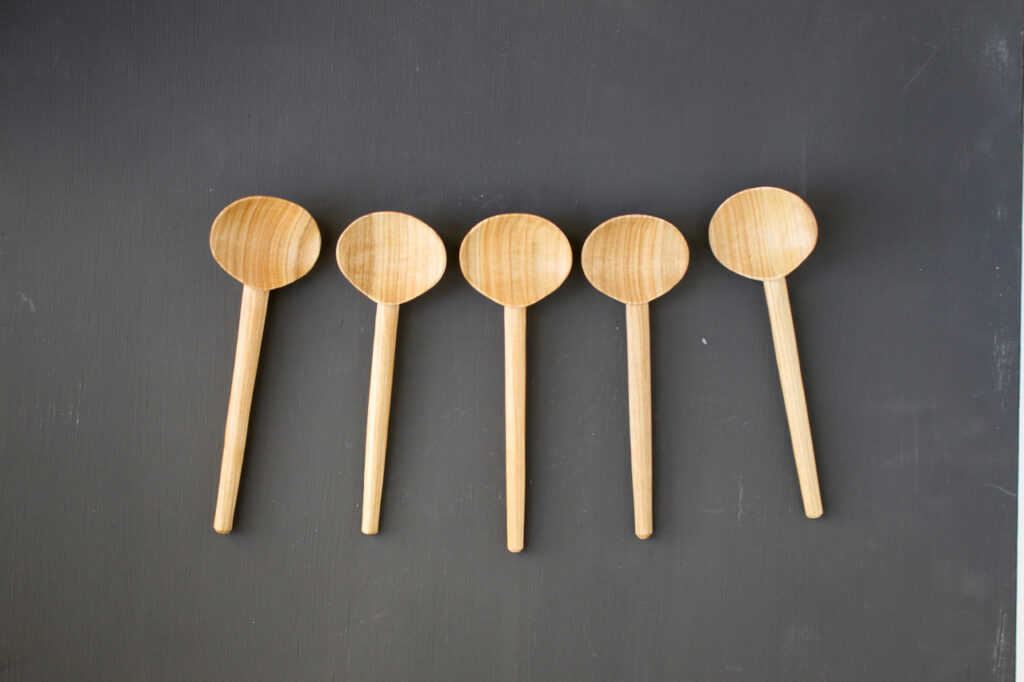Your cart is currently empty!
Wooden spoons

Many of you reading this blog have purchased one of my wooden spoons (for which I am very grateful). I wondered though, and what led me to write this blog, is do you know how it was made? Well spoon carving is in essence incredibly simple. You start with a tree and you remove wood until you have a spoon. What comes with practice is removing the right wood at the right time in the most efficient way.
This simple process used to make these wooden spoons is supported by simple tools. The carving itself uses four tools – froe (a crude sturdy piece of metal with a handle), axe, drawknife, and two types of knives. The felling of the tree in the first place uses an axe and then a saw to cut the tree into small enough chunks to carve.
If we start from when the tree is on the floor the process looks like this:
NOTE: all my wood comes from sustianably managed woodlands – see here for more details.
1/ A round of wood is cut off the tree that is the right length for the spoons I plan to make. In general the diameter of the tree needs to be at least 5 inches.
2/ This round is then cleft (split) into 8 parts. If you imagine a pizza cut into slices. You end up with these long triangular pieces of wood we call billets.
3/ These billets are then shaped with the axe until you get a piece of wood that roughly resembles a spoon.
4/ I use a drawknife to smooth off the rough axed surfaces.
5/ Finally a straight knife is used to refine the final shape before a hook knife is used to make the bowl.
6/ Finally the spoon is burnished (I use a stone and rub the spoon all over) to leave a super smooth finish that feels lovely in the hand, before oiling with raw organic linseed oil.

The straight knife. Simple, sharp and ready to carve! My knives are from Mora – they are reasonably priced, come sharp and the steel is good!
This is my go to carving axe, made by Gransfors Brux, a Swedish axe specialist. This particular one is the Swedish carving axe.


A collection of the finished product. These are cawl spoons, a traditional Welsh soup spoon.
There you have it. Each spoon now takes me between 45 minutes to an hour to complete and I sell them for between £14 and £15, so pretty good value I hope.
I really enjoy carving spoons as they are a constant test of my skills as a wood worker. They are little functional sculptures with endless creative possibilities.
